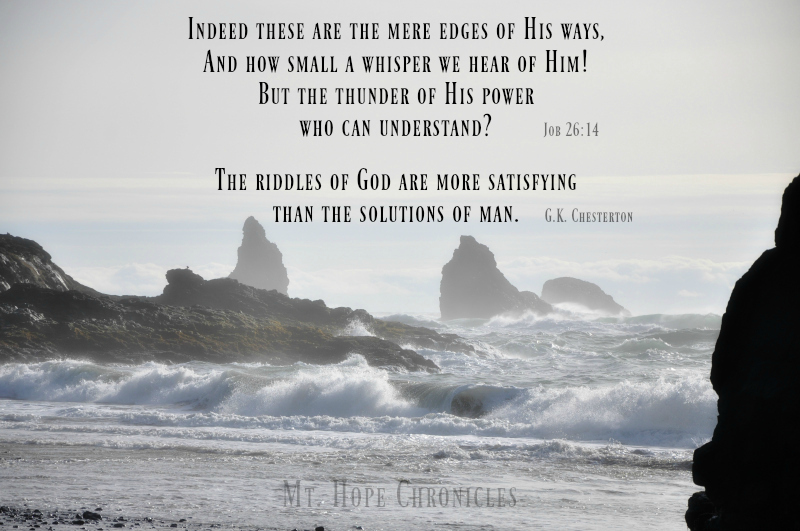
Collect
We have been saying the Lord’s Prayer/Pater Noster in English and Latin during our morning symposium.
During my quiet time this past week I read the following:
In the Episcopal order of worship, the priest sometimes introduces the Lord’s Prayer with the words, “Now, as our Savior Christ hath taught us, we are bold to say…” The word bold is worth thinking about. We do well not to pray the prayer lightly. It takes guts to pray it at all. We can pray it in the unthinking and perfunctory way we usually do only by disregarding what we are saying.
“Thy will be done” is what we are saying. That is the climax of the first half of the prayer. We are asking God to be God. We are asking God to do not what we want but what God wants. We are asking God to make manifest the holiness that is now mostly hidden, to set free in all its terrible splendor the devastating power that is now mostly under restraint. “Thy kingdom come… on earth” is what we are saying. And if that were suddenly to happen, what then? What would stand and what would fall? Who would be welcomed in and who would be thrown the Hell out? Which if any of our most precious visions of what God is and of what human beings are would prove to be more or less on the mark and which would turn out to be phony as three-dollar bills? Boldness indeed. To speak those words is to invite the tiger out of the cage, to unleash a power that makes atomic power look like a warm breeze.
You need to be bold in another way to speak the second half. Give us. Forgive us. Don’t test us. Deliver us. If it takes guts to face the omnipotence that is God’s, it takes perhaps no less to face the impotence that is ours. We can do nothing without God. We can have nothing without God. Without God we are nothing.
It is only the words “Our Father” that can make the prayer bearable. If God is indeed something like a father, then as something like children maybe we can risk approaching him anyway.
~Frederick Buechner, Listening to Your Life
Connect
Later in the week I read this passage in Job during my quiet time:
Job 26:7-14 (NKJV)
7 He stretches out the north over empty space;
He hangs the earth on nothing.
8 He binds up the water in His thick clouds,
Yet the clouds are not broken under it.
9 He covers the face of His throne,
And spreads His cloud over it.
10 He drew a circular horizon on the face of the waters,
At the boundary of light and darkness.
11 The pillars of heaven tremble,
And are astonished at His rebuke.
12 He stirs up the sea with His power,
And by His understanding He breaks up the storm.
13 By His Spirit He adorned the heavens;
His hand pierced the fleeing serpent.
14 Indeed these are the mere edges of His ways,
And how small a whisper we hear of Him!
But the thunder of His power who can understand?”
Later again, while still reading Job during my morning quiet time, I read G.K. Chesterton’s essay The Book of Job from In Defense of Sanity. Much of this essay is underlined in my book, but we’ll start with this quote:
“The riddles of God are more satisfying than the solutions of man.”
And Chesterton on the boldness (he calls it optimism) of Job:
Job is an optimist; he is an outraged and insulted optimist. He wishes the universe to justify itself, not because he wishes it to be caught out, but because he really wishes it to be justified.
…He shakes the pillars of the world and strikes insanely at the heaves; he lashes the stars, but it is not to silence them; it is to make them speak.
Thinking of Job, I was reminded of this article by Adam Andrews, The Lesson of Job: Literature's Luckiest Protagonist.
He ends by repenting of his idolatry and spurning his previous attempts to usurp God’s place in the universe. He has learned the most important lesson of all: there is a God in heaven, and I am not He.
Missy and I count ourselves lucky in that the calamity that was necessary in Job’s case has not been visited on us. And yet, it is fair to call Job lucky, too – for his troubles produced repentance and humility, which are the best goals of a good education.
This brings me full circle to the opening quote by Frederick Buechner:
“If it takes guts to face the omnipotence that is God’s, it takes perhaps no less to face the impotence that is ours.”
Create
[above photo]

Heidi, Thank you for this. It is so encouraging.
ReplyDelete